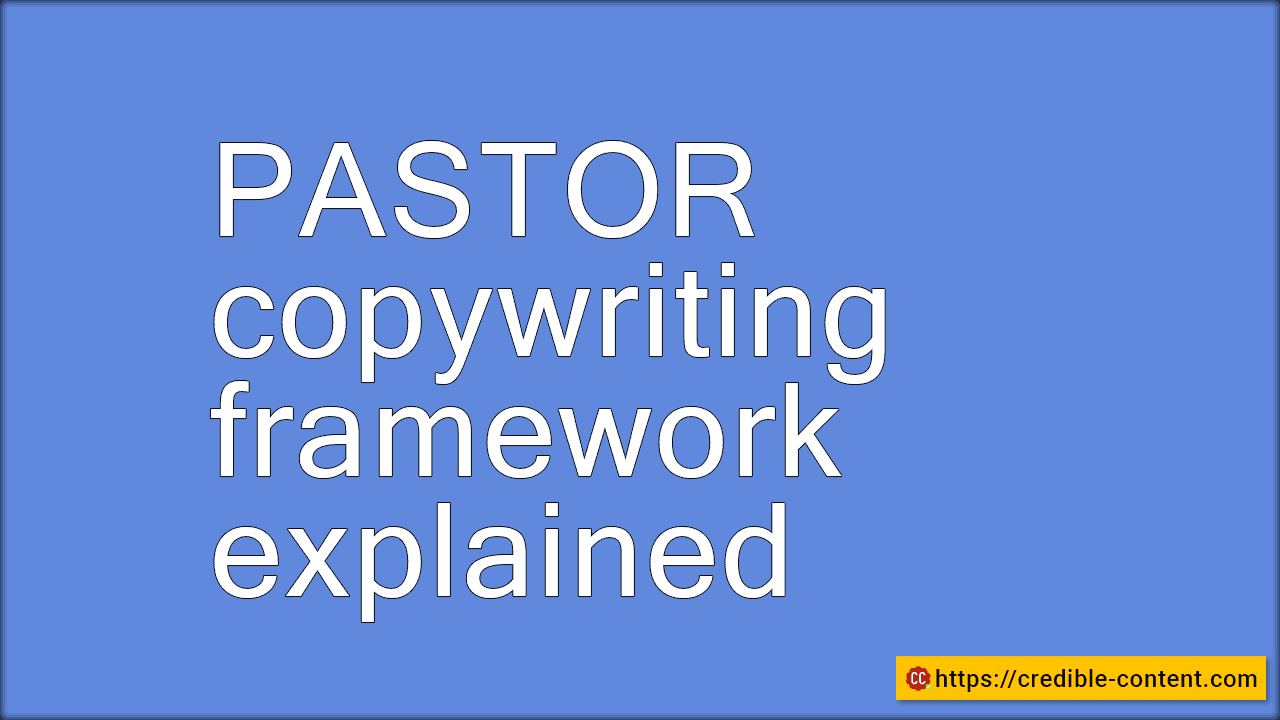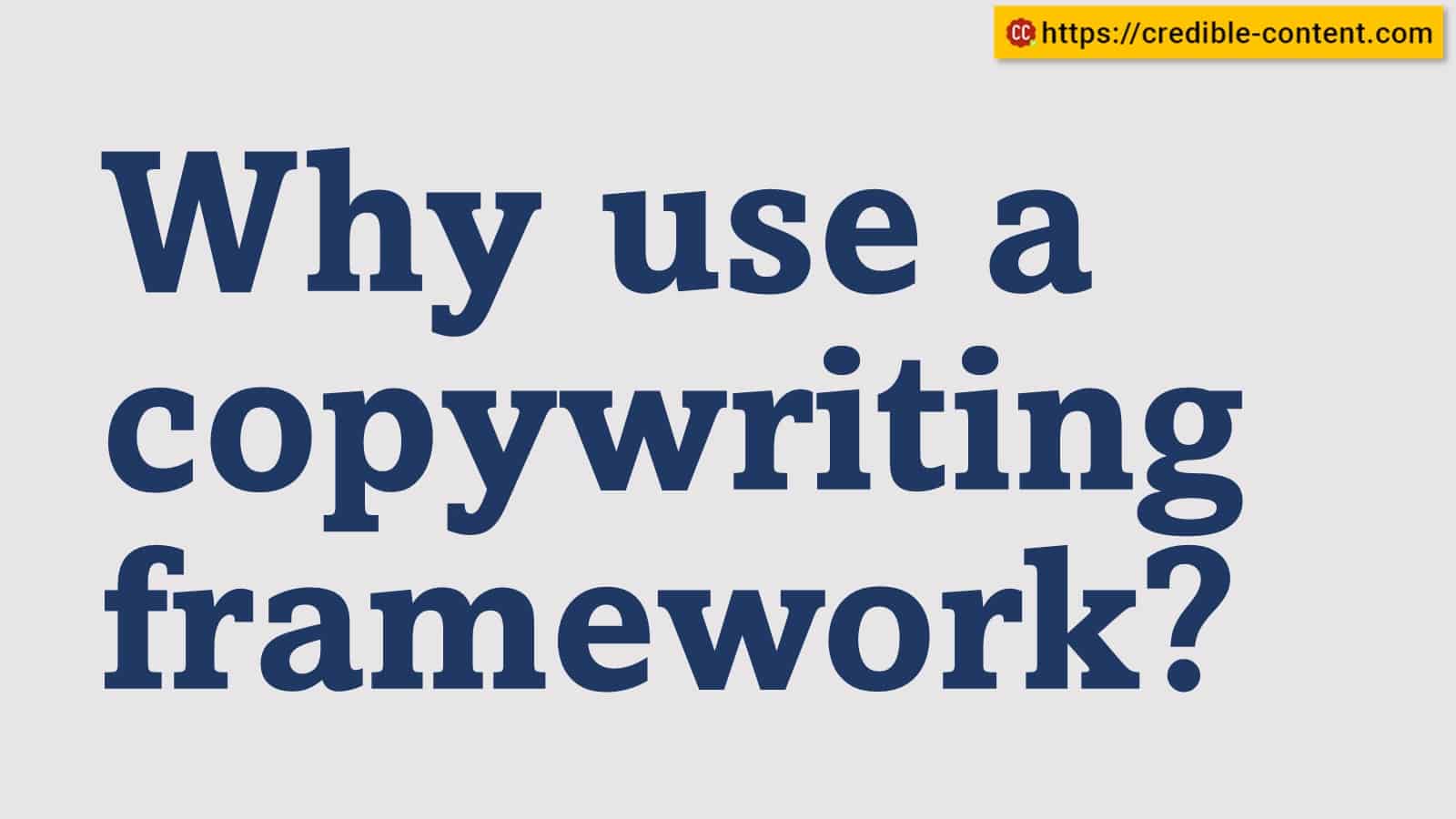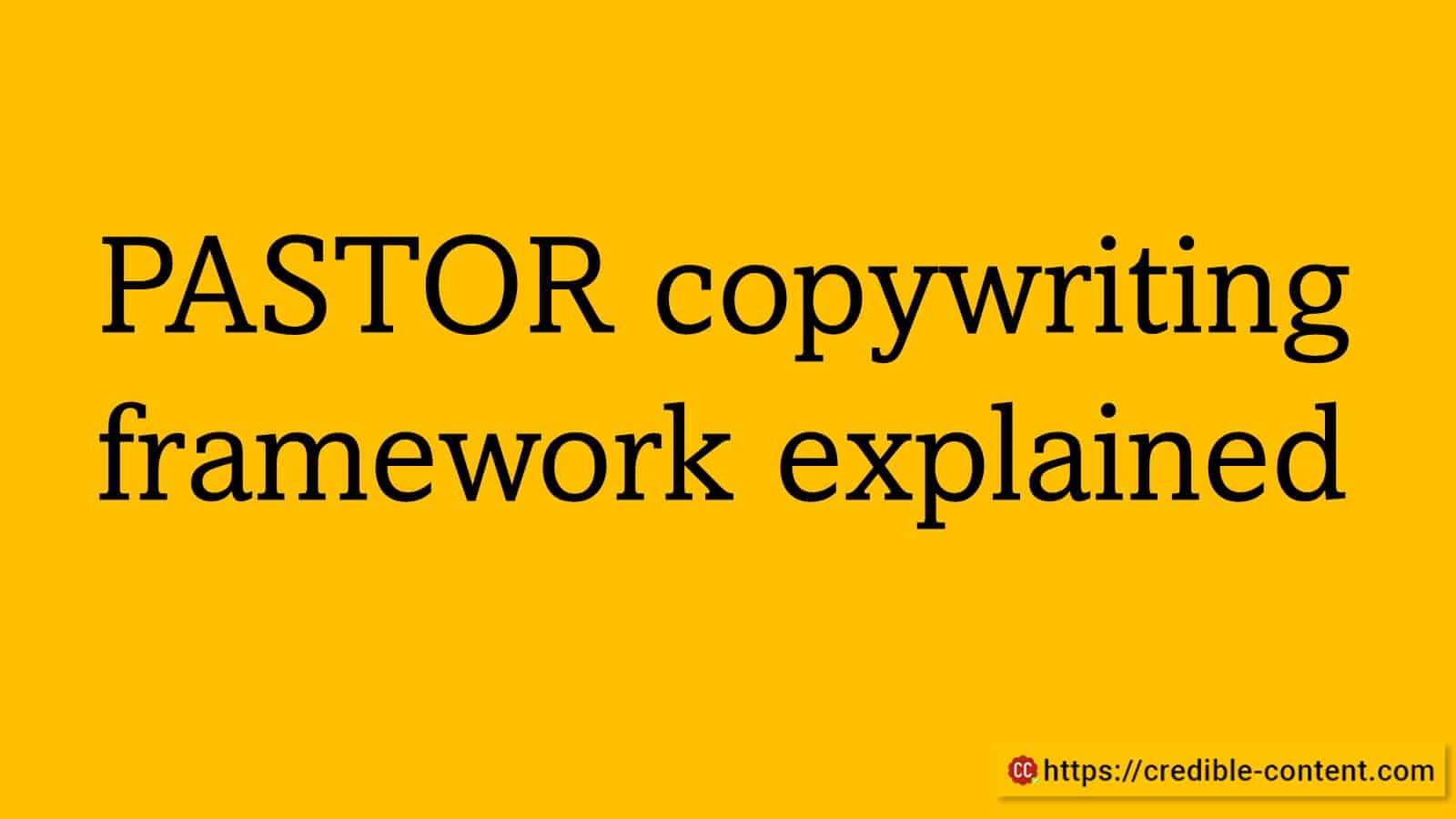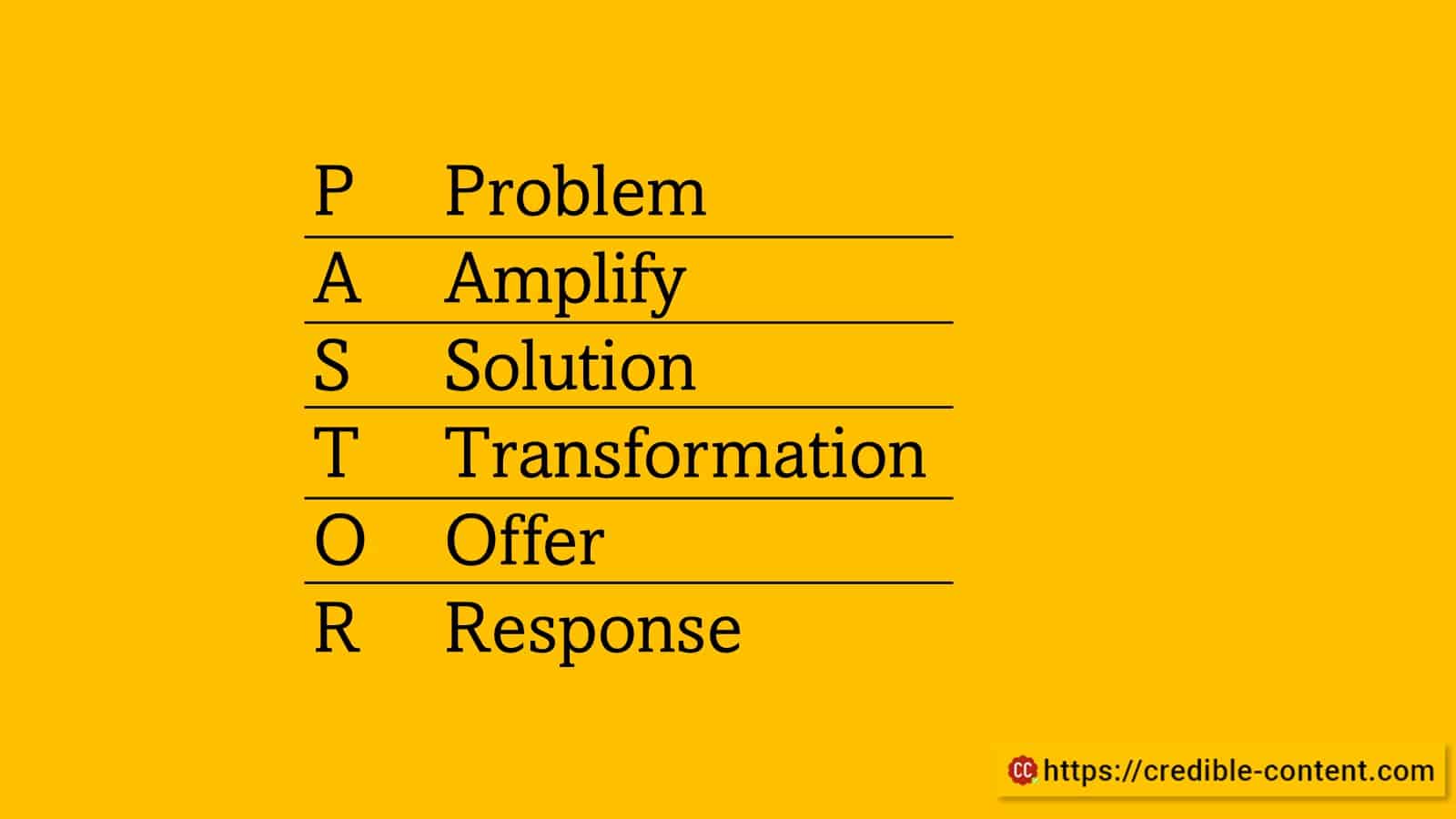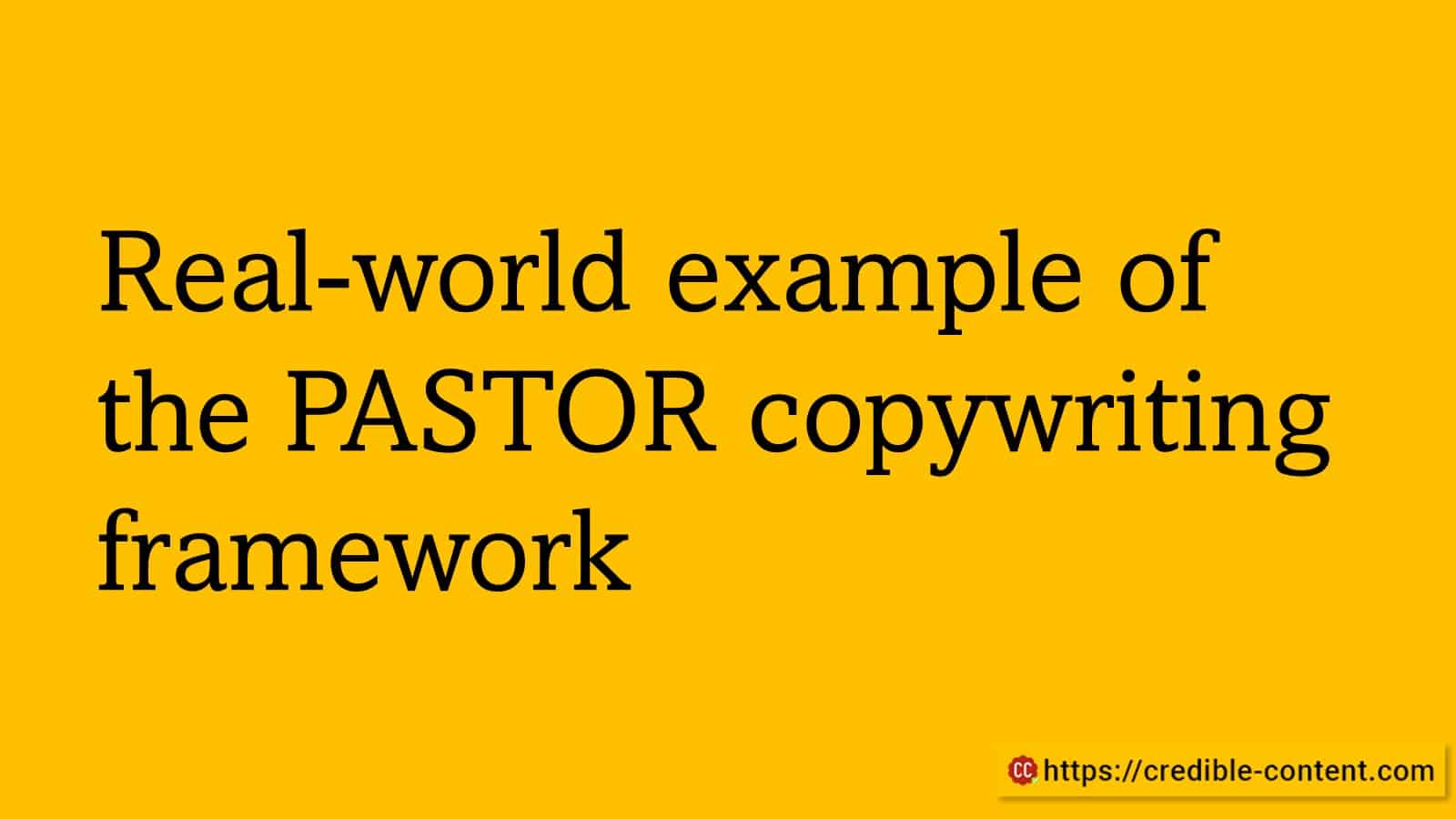Different frameworks are used in copywriting.
It may not be apparent to the readers, but most successful copywriters use one or another framework to craft their copies and make the right impact.
One of the frameworks is P.A.S.T.O.R.
Bust before that,
Why should you use a copywriting framework?
A framework is like a template. It gives you a direction.
When you use a copywriting framework you make sure that you miss nothing.
This is the basic purpose of a framework: it ensures that the copy that you are writing is consistent, clear, and effectively achieves its desired goal.
It helps you address the right target audience. It ensures that you cover all the key points that you need to communicate. It also helps you with setting the right tone and flow of your message.
A framework prevents you from going on your own trip and keeps you on the right path.
Not every framework necessarily works. It depends on what effect you want to have on your readers and different audience dynamics.
The choice of the copywriting framework also depends on how you want to present your message.
For example, there is a BAB framework often used in TV direct selling programs.
It stands for before-after-bridge.
It may go something like this:
===
Before part
Just one year ago I was 300 pounds.
My life was miserable.
I had no friends.
Clothes rarely fit me.
I was depressed all the time.
I had multiple health-related problems.
Even a little bit of activity would leave me breathless.
I couldn’t bend down and pick stuff up from the floor.
Explaining the PASTOR copywriting framework
Bridge part
Then I came across the “Get thin” app.
I was reluctant. I was cynical because I had used habits, techniques, tactics, and even apps, with no success.
But something made me sign up.
After part
It has been 11 months since I started using the app to track my weight loss and diet.
It has been nothing short of a miracle.
For 20 years I had been trying to lose weight and nothing had worked.
With the “Get thin” app, I have lost 50 pounds.
I’m sure by next year I will lose 50 more.
===
I know, this is a bare minimum, simple example.
It is just to explain to you the BAB framework.
Here are some other prominent frameworks used by copywriters:
- Features-Advantages-Benefits (FAB)
- Attention-Interest-Desire-Action (AIDA)
- Problem-Agitate-Solution (PAS)
- Problem-Promise-Proof-Proposal (PPPP)
- Star-Story-Solution (SSS)
- Awareness-Comprehension-Conviction-Action (ACCA)
- Clear, Concise, Compelling, Credible (4Cs)
What framework you want to use depends on how you want to present your idea to the prospects.
Explaining the PASTOR framework
The PASTOR framework has the following components:
P – Problem
Clearly define the problem you intend to solve. When you highlight the problem in the beginning it attracts people and makes them want to read further. They can relate to your copy.
A – Amplify
What are the consequences of not solving the problem? What difficulties are the readers facing because of the problem not being solved? Highlight the pain points. Magnify the misery.
S – Solution
Present your solution. Preferably, present the solution with a story. Make it convincing. Make it irresistible.
List benefits and features.
T – Transformation
How are lives transformed by your solution? Kindle their imagination. Draw a picture of a scenario where they have used your product or service and now, they are living blissful lives.
O – Offer
What do you offer as a solution? Why is your solution transformational? What wonders can it work? Why no other alternative must be considered? This is the section where you describe features and benefits along with the results the readers will enjoy.
R – Response
What response do you seek from them when they have read your message? Do you want them to visit your website? Do you want them to click your landing page link? Do you want them to book an appointment?
What is the benefit of using the PASTOR framework?
As I have mentioned above, every framework has its own benefits.
You can write without a framework and do an excellent job.
A framework like PASTOR helps you include every detail arranged in a logical manner.
For example, here is the flow of the PASTOR framework:
- P – Problem
- A – Amplify
- S – Solution
- T – Transformation
- O – Offer
- R – Response
You begin your copy with stating the problem your customer or client is facing.
This must be a vexing problem causing lots of trouble to the reader.
That is why, when the reader reads about the problems they are facing, they are instantly drawn to your copy.
For example, if for a long time you have been struggling with your search engine rankings, but nothing seems to work, if the first sentence of the copy talks about the problems associated with lower search engine rankings, you’re going to be instantly drawn to what is being written.
Everyone is struggling with one or another problem.
The PASTOR framework makes you begin your copy by highlighting the problem.
Once you have highlighted the problem, you need to amplify it.
You hit an emotional chord.
Again, using the lower search engine rankings example: you talk about how business opportunities are being lost because of lower search engine rankings.
Lower search engine rankings trigger a vicious cycle.
For a few lines you can talk about in what different ways the reader is losing money and wasting time.
They may never recover from the losses they are incurring due to lower search engine rankings.
Then you offer your solution.
For example, I provide SEO copywriting services.
I can explain in the copy further that I can help them improve their search visibility through targeted copywriting.
Real-world example of using PASTOR as a copywriting framework
Recently I wrote an email campaign for a head-hunter who provides his services to tech startups.
He is targeting companies that are unable to find the right talent.
He has developed a framework that allows startups and medium-size businesses weed out undesirable candidates and attract the right talent.
Although I’m not reproducing the message as it is, here is how I use the P.A.S.T.O.R framework to create the message.
<example>
PROBLEM
Dear [name]:
Is your company’s growth stunted due to lack of talented employees?
Is it becoming increasingly difficult for you to hire the right talent?
AMPLIFY
Hiring and retaining the right talent is crucial for the success and growth of your organization.
It is also one of the biggest challenges you face.
The competition is fierce.
The attrition rate is high.
SOLUTION
For the past three decades I have studied successful businesses that attract exceptional talent.
One of the biggest reasons why these businesses succeed is that they have developed systems and processes that help them look precisely at the right places for desirable talent acquisition.
Their systems automatically weed out undesirable candidates.
TRANSFORMATION
You can hire and retain extraordinary talent with 100% success rate.
Hire outstanding talent whenever you need to with 100% success rate.
Grow your business beyond your dreams.
OFFER
By studying their systems and processes, and closely observing what makes them successful, I have designed a framework of my own.
Using this framework, I have helped 150+ businesses hire top talent with a terrific success rate.
Assemble a phenomenal team in no time.
The framework is easy to implement.
It always works.
RESPONSE
Want to know more about it?
Let’s fix up a Zoom meeting.
Just a 20-minute chat.
During this chat I will walk you through a segment of my framework that will blow your mind.
</example>
So, you can see that there is a sequence of emotions the reader goes through when they read your copy, that you have written using the PASTOR copywriting framework.
Is it important that every time you write a copy you need to use a framework?
It depends.
Knowingly or unknowingly, whenever you’re writing copy, good, effective copy, no matter which framework you’re using, you’re using it.
Therefore, it is better to know which framework you are applying during copywriting so that you can utilize it in a better manner.

